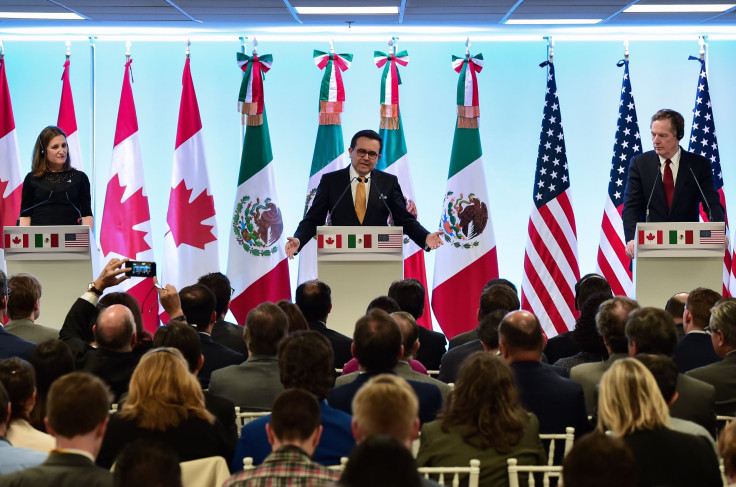Why Congress Should Pass The USMCA Trade Deal

Congress will soon vote to approve -- or reject -- the biggest trade deal in a generation.
Called the United States-Mexico-Canada Agreement, the pact will modernize North American trade, thus enriching American workers and supercharging the economy. It's critical for lawmakers to pass the agreement.
Canada and Mexico are two of our top three trading partners. Trade with our neighbors accounts for one-third of all U.S. exports and adds billions of dollars to the nation's economy each year. This trade also supports 14 million American jobs.
Yet the trade agreement we have in place, NAFTA, is outdated. It took effect in 1994. And it has several flaws that have become more and more obvious over time. Fortunately, the new agreement, USMCA, builds on NAFTA's successes and fixes its many shortcomings.
Consider how the new trade pact would help American farmers.
USMCA retains all of NAFTA's existing zero-tariff provisions on farm products. And it eases some existing market restrictions on eggs and poultry, so American farmers will be able to boost exports. The deal also expands U.S. farmers' access to Canada's dairy market by raising export quotas. U.S. dairy exports to Canada could more than triple as a result. And for the first time, American wheat headed to Canada will be treated identically to Canadian wheat headed our way.
Expanding the market for agricultural exports means more revenue for America's farmers and more job opportunities for farmhands. The agriculture industry already supports close to 6 million jobs. Increased trade will boost job creation on America's 2 million farms -- including 42,000 dairy farms.
Or consider how USMCA will help spur more medical innovation.
The deal brings intellectual property protections in Canada and Mexico for advanced "biologic" medicines closer to the U.S. standard that was implemented under President Obama in 2010 with strong, bipartisan support. This change will ensure that Canada and Mexico help pay their fair share -- and thus help American scientists develop more life-saving and life-changing treatments. This change will also help North America stay competitive globally, as policymakers in China are considering major advances to their own IP rules for biologics that could meet or exceed America's standards.
The new trade deal also protects American software companies. NAFTA was drafted when the internet was in its infancy, so the pact understandably lacked strong protections for digital products.
USMCA, by contrast, was developed to facilitate trade in a high-tech world. It prohibits the imposition of customs duties on digital products like software and e-books. That will make it easier for U.S. companies to sell those products in Canada and Mexico.
Similarly, the new pact strengthens protections for America's creative industries. The deal extends copyrights in Canada by 20 years, thereby ensuring that American musicians, authors, and filmmakers can enjoy the fruits of their labor for far longer.
Finally, USMCA is the first American trade deal to include a chapter devoted entirely to fostering small businesses. In the United States, over 30 million small businesses employ nearly half of the nation's private-sector workforce. USMCA establishes a special committee to help small firms navigate international trade law. This will enable these businesses to expand in a global market.
USMCA retains the best parts of NAFTA while fixing its many flaws. By prioritizing global competition and respecting the intrinsic value of innovation, it serves as an exemplary model for all future free-trade agreements. Congress should ratify USMCA as soon as possible.
Rick Dearborn is executive director of the Pass USMCA Coalition and previously served as deputy chief of staff for President Trump. Gary Locke is honorary co-chairman of the Pass USMCA Coalition and previously served as governor of Washington, U.S. ambassador to China, and secretary of commerce.
© Copyright IBTimes 2024. All rights reserved.





















